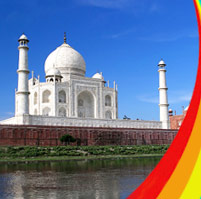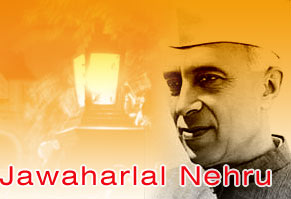Jawaharlal Nehru was born on November 14, 1889 in
Allahabad, Uttar Pradesh. Born with the proverbial silver spoon,
Jawaharlal had a western upbringing and studied in the famous Harrow
School and Trinity College in England. In 1916, at the age of 27,
Jawaharlal married Kamala Kaul and the following year saw the birth of
their only child Indira Priyadarshini. After an initial brush with legal
practice, Jawaharlal Nehru joined the Indian National Congress and
started his political career under the tutelage of father Motilal Nehru.
After the successful Champaran and Kheda Satyagrahas, Mahatma Gandhi
emerged as the undisputed leader of the masses and Nehru soon became one
of his trusted aides. Under Gandhi's influence Nehru shunned his western
lifestyle and traveled extensively to garner resistance against the
British. Through the 1920s Jawaharlal Nehru earned accolades for his
passionate anti-British stance and was elected Congress Party president
in the 1929 Lahore session.
Nehru played a prominent role in the 1930 Salt Satyagraha launched by
Gandhi and when Congress called for the historic Quit India movement in
1942, he and Subhash Chandra Bose were at the forefront of the mass
protests against the government. The moment of freedom has arrived and
after some internal conflicts in the Congress Party Nehru was chosen as
the head of the interim government. He took office as the first Prime
Minister of India on August 15, 1947.
As Independent India's prime minister, Jawaharlal Nehru launched a
series of economic and social initiatives in line with his vision of a
socialist Indian nation. Apart from domestic issues, Nehru emphasized on
forging alliances with other like-minded countries and was instrumental
in founding the Non-Aligned Movement. The 1962 Chinese invasion of
India's northeastern states was a big setback to Nehru's peaceful
policies and his government also had to face corruption charges. After a
period of illness, Pandit Jawaharlal Nehru passed away on May 27, 1964.









